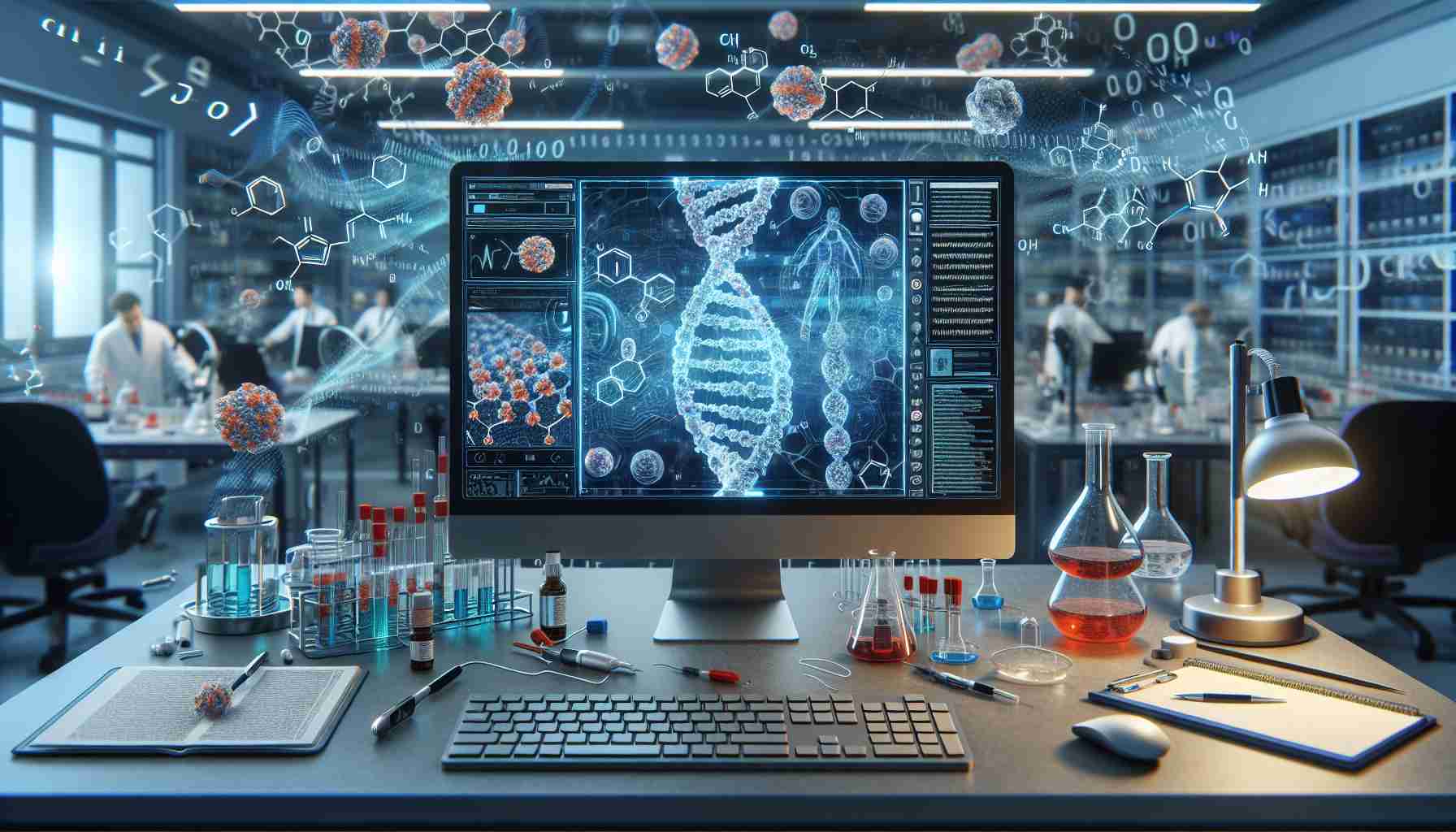Artificial intelligence (AI) has gained significant attention for its potential to revolutionize various industries, including drug discovery. Recent developments in AI-powered platforms have enabled researchers to tackle previously “undruggable” cancer targets, such as the KRAS gene, which is frequently mutated in cancer. This breakthrough has the potential to transform cancer treatment and improve patient outcomes.
Insilico Medicine, a leading AI drug discovery company, has partnered with the University of Toronto to test AI-designed molecules against these undruggable targets. The collaboration aims to evaluate 15 to 20 targets across different cancer types, utilizing the power of AI algorithms to design novel molecules with desired properties.
Traditionally, drug design has been a challenging and time-consuming process due to the complex nature of human proteins. Many protein surfaces lack suitable pockets for small molecule drugs to bind, making them “undruggable.” However, AI overcomes this limitation by analyzing vast amounts of data and uncovering patterns that humans may not readily perceive.
Kyle Tretina, Alliance Manager of AI Platforms at Insilico Medicine, explains that AI outperforms humans in tasks like drug discovery and development, particularly in handling large volumes of data. With approximately 90% of drugs failing during development, AI offers an efficient and effective approach to analyze data, identify potential drug targets, and design molecules that interact with them.
Insilico Medicine’s Pharma AI suite comprises three platforms: Biology 42, Chemistry 42, and Medicine 42. These platforms enable the company to identify targets, design effective molecules, and predict clinical trial outcomes. The company’s unique approach combines multi-omics data and text data to gain insights into disease states and explore potential drug targets.
Moreover, Insilico Medicine leverages AI to create tailored molecules that selectively and strongly bind to the desired target, effectively altering biology. This differs from the traditional “docking approach” and allows for a more precise and personalized approach to drug design.
The potential of AI in drug discovery and development is undeniable. By harnessing the power of AI algorithms, researchers can analyze complex biological data, identify novel drug targets, and design molecules with higher chances of success. This technological advancement brings hope for more effective cancer therapies and paves the way for a new era in medicine.
FAQ:
Q: What is the potential of artificial intelligence (AI) in drug discovery?
A: AI has the potential to revolutionize drug discovery by analyzing vast amounts of data and uncovering patterns that humans may not readily perceive. It offers an efficient and effective approach to analyze data, identify potential drug targets, and design molecules that interact with them.
Q: What is Insilico Medicine’s collaboration with the University of Toronto about?
A: Insilico Medicine has partnered with the University of Toronto to test AI-designed molecules against “undruggable” cancer targets, such as the frequently mutated KRAS gene. The collaboration aims to evaluate different cancer types and utilize AI algorithms to design novel molecules with desired properties.
Q: How does AI overcome the challenge of “undruggable” protein surfaces?
A: Protein surfaces that lack suitable pockets for small molecule drugs to bind are traditionally considered “undruggable.” However, AI overcomes this limitation by analyzing vast amounts of data and uncovering patterns that can be used to design molecules that interact with these targets.
Q: How does Insilico Medicine utilize AI in its drug discovery process?
A: Insilico Medicine’s Pharma AI suite comprises three platforms: Biology 42, Chemistry 42, and Medicine 42. These platforms enable the company to identify targets, design effective molecules, and predict clinical trial outcomes. The company combines multi-omics data and text data to gain insights into disease states and explore potential drug targets.
Definitions:
– Artificial intelligence (AI): The simulation of human intelligence processes by machines, especially computer systems, to perform tasks such as speech recognition, decision-making, and data analysis.
– Drug discovery: The process of identifying and developing new medications by studying disease mechanisms and designing molecules that interact with specific targets to treat or prevent diseases.
– Undruggable targets: Protein targets that have historically been challenging to develop drugs against due to the lack of suitable pockets for small molecule drugs to bind.
Suggested related links:
– Insilico Medicine: Official website of Insilico Medicine, a leading AI drug discovery company mentioned in the article.
– University of Toronto: Official website of the University of Toronto, which has collaborated with Insilico Medicine in testing AI-designed molecules against undruggable cancer targets.
– Nature Reviews Drug Discovery: A scientific journal article discussing the challenges and potential of AI in drug discovery.
The source of the article is from the blog jomfruland.net

